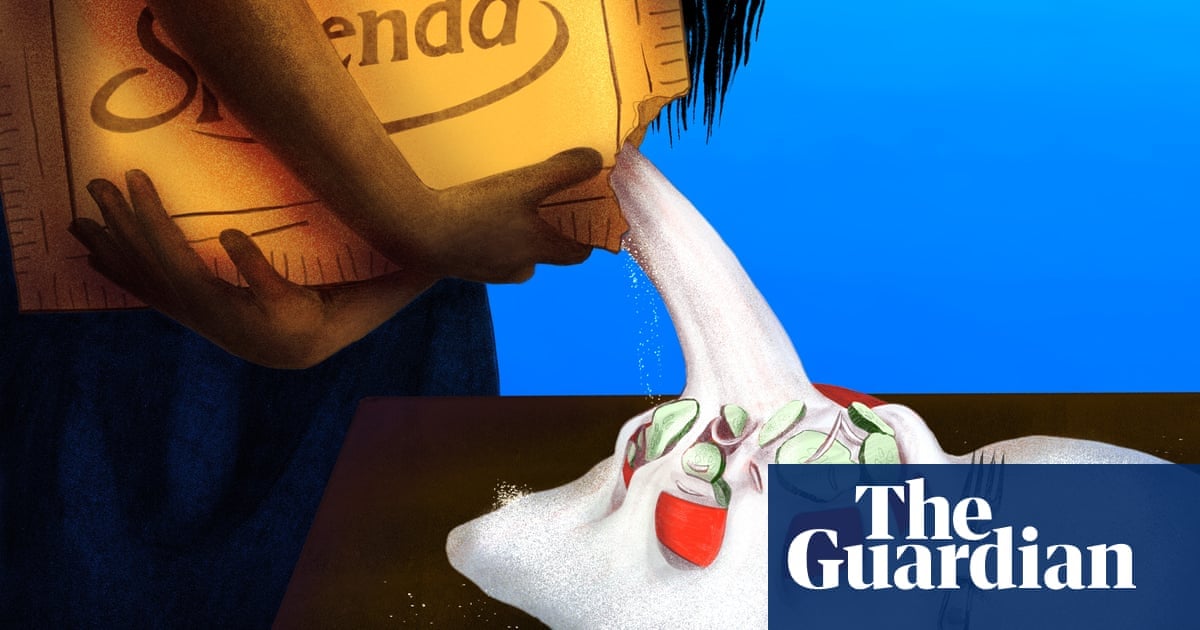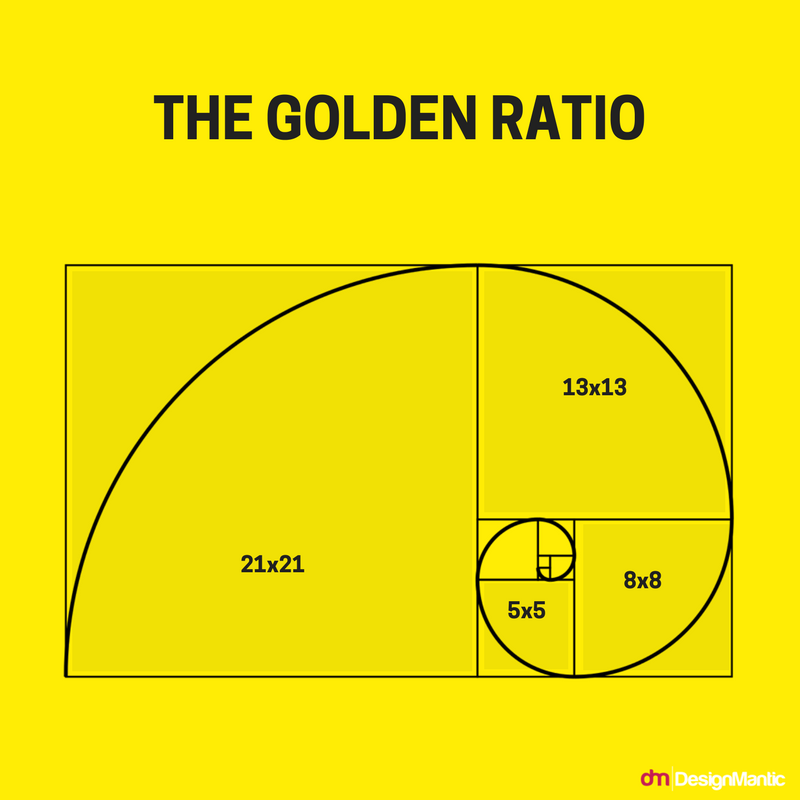Elizabeth Hanna says she was fired by the American Diabetes Association after refusing to approve recipes heaped with the additive made by a major donor
Elizabeth Hanna had a simple job: help people with diabetes figure out what to eat. Anyone with common sense knows this should probably not entail foods that might increase people’s risk of getting diabetes. But that’s not necessarily the thinking at the American Diabetes Association (ADA), the world’s leading diabetes research and patient advocacy group, which also receives millions of dollars from sponsors in the pharmaceutical, food and agricultural industries.
According to a lawsuit Hanna recently filed against the ADA, the organization – which endorses recipes and food plans on its website and on the websites of “partner” food brands – tried to get her to greenlight recipes that she believed flew in the face of the ADA’s mission. These included recipes like a “cucumber and onion salad” made with a third of a cup of Splenda granulated artificial sweetener, “autumnal sheet-pan veggies” with a quarter cup of Splenda monk fruit sweetener and a “cranberry almond spinach salad” with a quarter cup of Splenda monkfruit sweetener.
Guess which company gave more than $1m to the ADA in 2022? Splenda.
Who even puts a sweetener in a salad?
This really feels like those awful receipe books that companies put out in the 1950s and 1960s. Like Jello salads and such. This used to be a pretty common thing and it’s a bit surprising to see it appear again.
It’s not uncommon for a dressing to have sugar in it I guess. I’ll put maybe a teaspoon of sugar in a homemade vinaigrette sometimes, but that’s all. A third of a cup sounds disgusting.
I was about to say. A third of a cup is more than the ENTIRE VOLUME OF DRESSING I’d consider putting in a salad… that would serve four people.
Maybe a teaspoon of sugar to balance the acidic flavours in the dressing. Maybe.
Looking at that recipe, it reads like “quick pickles” which are normally made with a hot mixture of white vinegar and sugar (and admittedly quite a lot of sugar), but in those the critical step is you drain the pickled vegetables before serving, so the actual amount of sugar retained by the food is still relatively low. No mention of draining before serving here though, so perhaps it is just artificially-sweetened cucumber and vinegar soup? Blergh.
It’s common to add sugar to quick pickles? Unless you’re canning them and need the sweetener to temper the overwhelming flavor of the massive amount of vinegar required to fend off botulism.
Granted, I’m all about the half-sour pickles, which use salt not vinegar, like so: https://brooklynfarmgirl.com/half-sour-pickles-5/
I’ve only ever seen salads with fruits or beets having any sort of sweetener added.

(Yes this is a real thing)
Grandma has T2D for sure.
A pinch of sugar helps countering acidic flavors from eg tomatoes. It rounds the flavor. ⅓ cup is insanity tho
Amerifats
Hurhurhurhurhur
Coming from the Empire (way I refer to the USA) it’s strange that they don’t have a fried salad with fried sweetener croutons
Oh, You’ve apparently never been to a fair or carnival in the Empire
Conspiracy aside, who the fuck would put a quarter cup of sugar-anything in a ‘healthy’ vegetable dish? Why is there added sugar* at all??
And it’s 600 times sweeter than sugar?
Edit: that’s pure sucralose, didn’t realize Splenda was a specific formulation.
Sucralose is, splenda has fillers to make it the same as sugar.
The base sweetener is, but the product “Splenda” is basically diluted with filler to make it as sweet as sugar.
The salads I kind of understand because sweet dressing is a thing, but sweetened roasted veggies? 🤢
C’mon that’s bullshit. 1/3 a cup of Splenda in a salad? If I said 1/3 a cup of sugar? Jesus Christ what are these recipes?! Lol
I don’t know how familiar you are with salad dressing but you don’t usually pour the entire batch of dressing on one salad lol
Counter point. I am not aware of any salad dressings that call for a 1/3 of a cup of sugar in a 400ml bottle.
Not being aware something doesn’t mean it doesn’t exist. Sounds gross to me but I wouldn’t even be mildly surprised if it existed
True however you can make the argument that most people don’t pour a whole bottle of salad dressing on their salad but dimes to dollars there are people out there that do.
Point being, aware or not common sense dictates a level of truth irrespective of it being anecdotal.
1/3 cups of sugar is 67 grams of carbs. I will bet my life there is no salad dressing that has that many grams of carbs in the bottle. That’s more sugar than 2 cans of coke.
Sadly some people put sugar in pickles
Its same as Zero diet coke.
Personally I don’t like my salads tasting like Diet Coke
I mean, you’re being misleading, since it’s calorie-free. Still deeply gross, but you’re not gonna make your salad worse for your diet.
These included recipes like a “cucumber and onion salad” made with a third of a cup of Splenda granulated artificial sweetener, “autumnal sheet-pan veggies” with a quarter cup of Splenda monk fruit sweetener and a “cranberry almond spinach salad” with a quarter cup of Splenda monkfruit sweetener.

It never ceased to amaze me how Schitt’s Creek gifs always 100% encapsulate my feelings every time I see them used. I can’t articulate my own emotions as well as David and Alexis can for me.
a third cup of Splenda
Sucralose is 600 times sweeter than sugar. Who the fuck is putting more than a spoonful of Splenda in anything?!
Many Splenda products are mixed with filler, some are mostly maltodextrin, some are even mixed with regular sugar, so that they can be more easily measured.
Xylitol
Does this sweetener trigger an insulin response?
It is too sweet but Splenda is better than sugar. By farXylitol is deadly poisonous to dogs and cats.
Are you sure its not just that they have a risk of far overeating it and killing themselves with diarrhea
It doesn’t take much xylitol to kill a dog or a cat. thankfully cats don’t have a taste for sweet things but it will kill them, it’s poisonous. I won’t allow it in my house and I’m always reading labels to make sure no xylitol is in things because it could fall on the floor and my dog could eat it. She is a medical service dog so thankfully she has been taught not to eat things off the ground. Xylitol in gum is very common and people spit their gum out all over the place.
https://vcahospitals.com/know-your-pet/xylitol-toxicity-in-dogs
Xylitol gives me the squirts
The sugar-free gummy bears effect.
Well it is a laxative in high doses(>20g)
All sweeteners influence insulin response and resistance
But as someone who was diagnosed with type 2 diabetes three years ago, I can attest that the dietary and medicinal guidance one gets from doctors and the ADA can be worse than the condition. The result is what the former head of the World Health Organization has called “a slow-motion disaster”, that led to the deaths of 2 million people in 2019.
As someone under the treatment of American medicine for decades, I have to agree; doctors don’t know everything.
They aren’t supposed to, which is why things like the ADA exist. It’s sad that there appears to have been an industry takeover of it.
Are you the one from the ads who has the one trick doctors don’t want us to know? Please, enlighten us.
Ack. I hate sweet salad dressing, think that just from a culinary standpoint she was right to push back on these. Training your palate to enjoy other flavors would go a long way to getting a lower sugar diet.
I also fucking hate the taste of monkfruit and stevia, they are most foul.
But if her argument is that the sweet tasting non caloric sweeteners directly promote diabetes, like they act like sugar, I think this has been disproven several times over.
This is another example of greed/capitalism/failure of institutions. I firmly believe this type of behavior is what leads to people losing trust in institutions and science. Why people turn to conspiracy theories and all natural anti-vaxx terrain.
Low-carb diets work. Why does the American Diabetes Association push insulin instead? https://www.theguardian.com/commentisfree/2024/apr/17/ada-american-diabetes-association-big-pharma
PS, from $1 to oligopolies.
…are you seriously asking why the ADA advises insulin use for patients with diabetes
I can only hope most people just read the start
No, thats not what the piece is advocating or talking about at all. If you read it.
Read the study the article is based on. That’s what I read. guess you didn’t?
Do you or someone from your family work for big pharma? Or perhaps a member of Wall St, not Main Street, and own shares. I’m not anti-insulin or science, I was vaccinated from the go when covid hit. But conflict of interest means obfuscation and self-interest when you should focus on the science and the people. Do you want to pretend big pharma wants to deliver the best at the lowest prices for people who need the drugs? I’m not so naive but u go ahead and go to bat for them.
Reading the ADA’s publications, one would get the impression it is a grassroots organization supported by moms and pops. A banner on their website blares: “Your Support Goes Twice as Far!” Every few seconds, a pop-up announces a new small donation: “Patrick F donated $100.” “L Robert H. donated $12.” “Al S donated $20.” These small donors may not know that, in 2021, the Patients for Affordable Drugs report, found that a third “of the members of the ADA board of directors have financial ties to the pharmaceutical industry”.
You’re confusing my intentions. I’m here to defend splenda, it’s safety, and it’s deliciousness.
The conflict of interest between Americas regulatory bodies and it’s corporations is extremely concerning. The fact that Medical companies are allowed to advertise products still blows my mind. Those are a few of the many reasons I’m a big advocate of Universal health care. There’s a lot of shady shit, but you can take my splenda from my cold dead hands.
“You’re confusing my intentions.”
I’m here to focus on the conflicts of interest between regulatory bodies, corporations and institutions that are meant to educate the population on things like healthcare. Yeah, it’s a huge problem, bigger than the subjective deliciousness of Splenda.
Conflict of interest may not concern you, but it should concern all. This is how people lose trust in institutions. Pharmaceutical companies and their greed, high drug prices, are problematic.
The ADA’s corporate contributions are not precisely traceable. Based on financial filings, this is what we know: between 2017 and 2024, more than 50 pharmaceutical and device manufacturers contributed over $134m to the organization, or roughly 20% of its total funding. Food industry contributions were not broken out.
It isn’t difficult to see how contributors to the ADA get bang for their buck. The ADA’s social media feed is a virtual supermarket of products purveyed by its funders.
Need a diabetes test? Go to CVS! ($10m 3 year partnership in 2021.) Want to learn more about kidney care? Do it with DaVita! ($1.5m in 2024.) Want to donate to the ADA? Just head over to your local GNC store and put your money in the tin can. ($100k in 2024.) Needless to say, a low-carbohydrate product that lowers blood sugar also reduces need for the drugs and ancillary products that make diabetes such a boon for the healthcare industry.
In 2021, Patients for Affordable Drugs published a landmark report exploring connections between 15 patient advocacy groups and the pharmaceutical industry. The ADA scored lowest because it: “Accepts funding from pharma industry” and also because it “Has board members with financial ties to pharma industry; Shares lobbyist and/or lobby firm with pharma,” the report said.>
Some people don’t even make insulin on their own… they sorta have to use insulin.
A low-carb diet is not going to miracle cure someone’s defective pancreas.
Yes, but that’s not what the piece is talking about either. We’ve gone from stick to the facts, to while I have you here, let me interest you in this product…
There is a very real issue of not focusing on preventative measure and education and instead raking it in by way of hocking products. Conflict of interest is a real thing and not much money to be made by way of education and preventative teachings. But thats what gives openings to Joe Rogan types instead to hock their teachings.
I’m on keto so I use the occasional stevia or monk-fruit sweetener when I’m craving something sweet, and the fact that she was fired for not approving those recipes make the sweeteners feel much more suss. And they were already kind of suss to begin with, so like… what are they not telling us ?
I’m mostly amazed at the amount! I’m in the same boat as you. I very rarely use it, but when I do, I use like a few granules in my hand because it’s so sweet.
As a type 2 diabetic myself having managed my condition well now for over a decade, there’s no other way to put this: The ADA’s guidelines and recommendations are fucking garbage. And advice I’ve received from doctors hasn’t been much better, since they’re generally following the aforementioned guidelines.
It seems the WHO guidelines are not without controversy, they relied on observational studies that are extremely vulnerable to reverse causation. The few RCTs that have been done indicate that sweeteners work just fine, but the WHO thought they weren’t long enough.
https://www.hsph.harvard.edu/nutritionsource/2023/06/06/who-guidelines-non-sugar-sweeteners/
https://www.bmj.com/content/383/bmj-2023-075293
Although, that aside, those recipes sound disgusting.
almost gags after tasting them
“Uhh yeah guys. Totally tastes great, but those pesky who guidelines…”
Reminds me of Brawndo in Idiocracy simply buying the FDA and FCC
For those confused about why Splenda is problematic, it has less than a third of the calories as Cane Sugar. So when you add a lot of it to a recipe it can be as bad as adding some sugar.
I’m sure Elizabeth Hanna approved some use cases for Splenda, but 1/3 of a cup for a cucumber salad is silly.
it has no calories, what are you talking about?
Splenda is a low calories sweetener, the only reason a small package can say Zero Calories is just because of archaic FDA rule that some ingredients don’t have to be listed below 5 Grams which works as a sort of loophole for very small servings to not list things. There are 96 Calories and 24 carbs per Cup of Splenda.
Isn’t the whole point, at least for aspertame and other sweetners- I don’t know about Splenda; that they have a much stronger flavor so you use nowhere near as much
No. Sweetness does not come from calories, it comes from the shape of the molecule as it touches the taste buds. Zero Calorie sweeteners do exist. Splenda is not one of them.
People who shy away from sweets more often have a biological issue with high caloric content, such as diabetes or otherwise chronic weight gain caused by a type of Thyroid disorder. Some people simply prefer to stay at their current weight and avoid the health complications that come with high calories.
No. Sweetness does not come from calories,
Agreed.
That wasn’t my point. My point was that where you would use a cup of sugar you’d use less Splenda than that, because it is sweeter. It is also lower calorie. Those are two compounding effects.
I answered your question, that’s not the point of using low or zero calorie sweeteners because volume has absolutely no correlation to calories or sweetness. Using less or more cups is meaningless in a discussion of their nutritional value.
It was poor rhetorical phrasing meant to emphasize it’s much sweeter than sugar, yes I know the point is also that they’re low calorie.
Using less or more cups is meaningless in a discussion of their nutritional value.
Well that’s not entirely true, extremely high doses of aspartame at least in rats was associated with cancer.
Splenda does not increase risk of diabetes. It’s not unhealthy. This article is nonsense. My favorite salad dressing uses a quarter cup of splenda, it’s fine.
Some study done a while ago said that eating things that are sweet, but with no caloric value, make you crave other caloricly dense sweet things, which can lead to an increase in diabetes risk. The key ingredient to that increase, is eating sugary things, not eating splenda.
This is stupid.
You didn’t quite read past the headline huh
I actually read the study the article is based on, so… it’s linked there, right in the article
The “study you read a while ago” evolved into the one in the article when you were gently challenged? Dude that’s crazy.
Here’s the research you didn’t read. It was published in 2022, hence “I read it a while ago”
They showed a correlation with a change in gut microbiota that’s not as significant of a change as when eating just sugar.
hence, this is stupid. Don’t want adult onset diabetes? don’t overeat a bunch of sugar. Using splenda to help reduce the amount of sugar you eat on a daily basis, will cause a change in your gut micrbiota associated with increased serum insulin levels in response to glucose loads. But when compared to just eating sugar instead? Well, Splenda is better.
would you like me to keep reading things for you, or you think you can take it from here, champ?
You didn’t read the article or its’ study. You linked a related (but not closely) article you hadn’t read before and just searched. The article is not claiming that splenda causes diabetes, nor is the study, but it is pointing to conditioning the pallette for sweetness increasing the risk of diabetes. It’s cute you tried to be condescending but maybe actually take the time to read the content if you’ve got time to try and be an asshole.
d’aww, you almost made a pint. adorable.
Yet research has suggested that Splenda may wreak havoc on gut biome health and lead to increased glucose intolerance in a way that is similar to regular sugar. In fact, just last summer, at the very same time Hanna was battling with her bosses, the ADA’s own journal Diabetes Care published a study, drawn from 13 years of data from 105,588 participants, that concluded that there were “positive associations between artificial sweetener intakes and increased [type-2 diabetes] risk” that “strengthen the evidence that these additives may not be safe sugar alternatives”.
there’s the paragraph in the article which links to the study you misunderstood.













